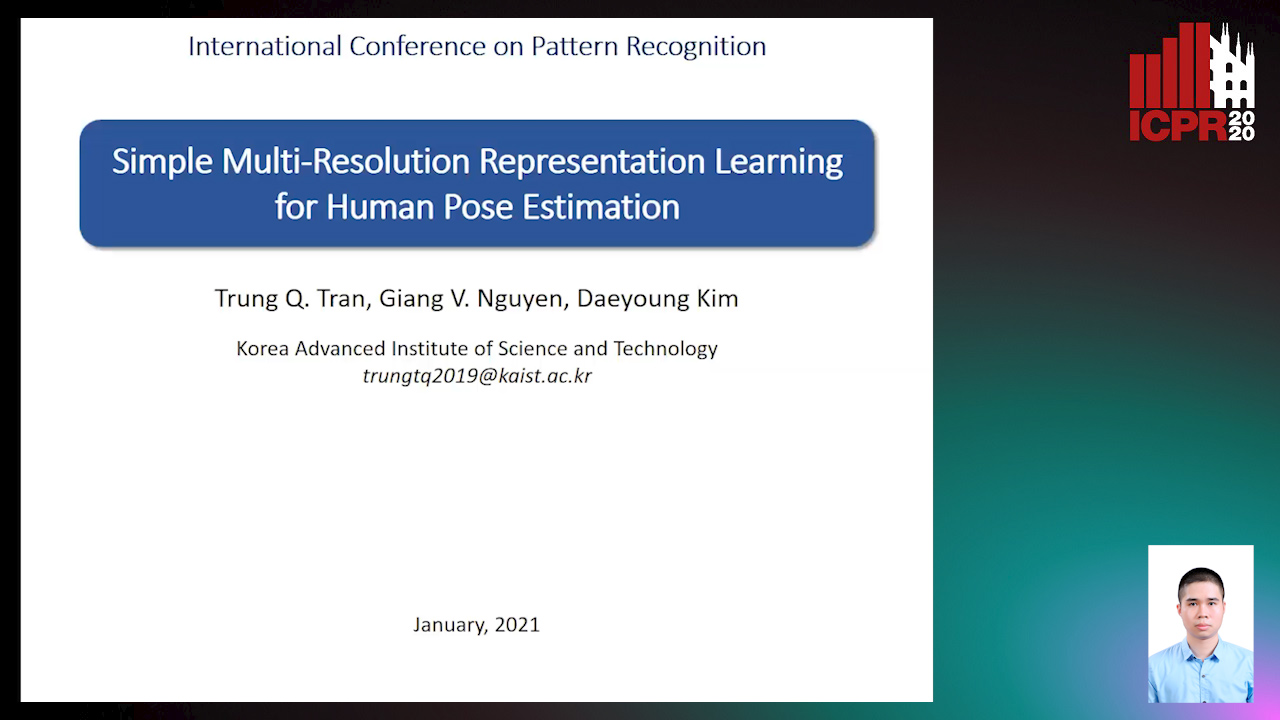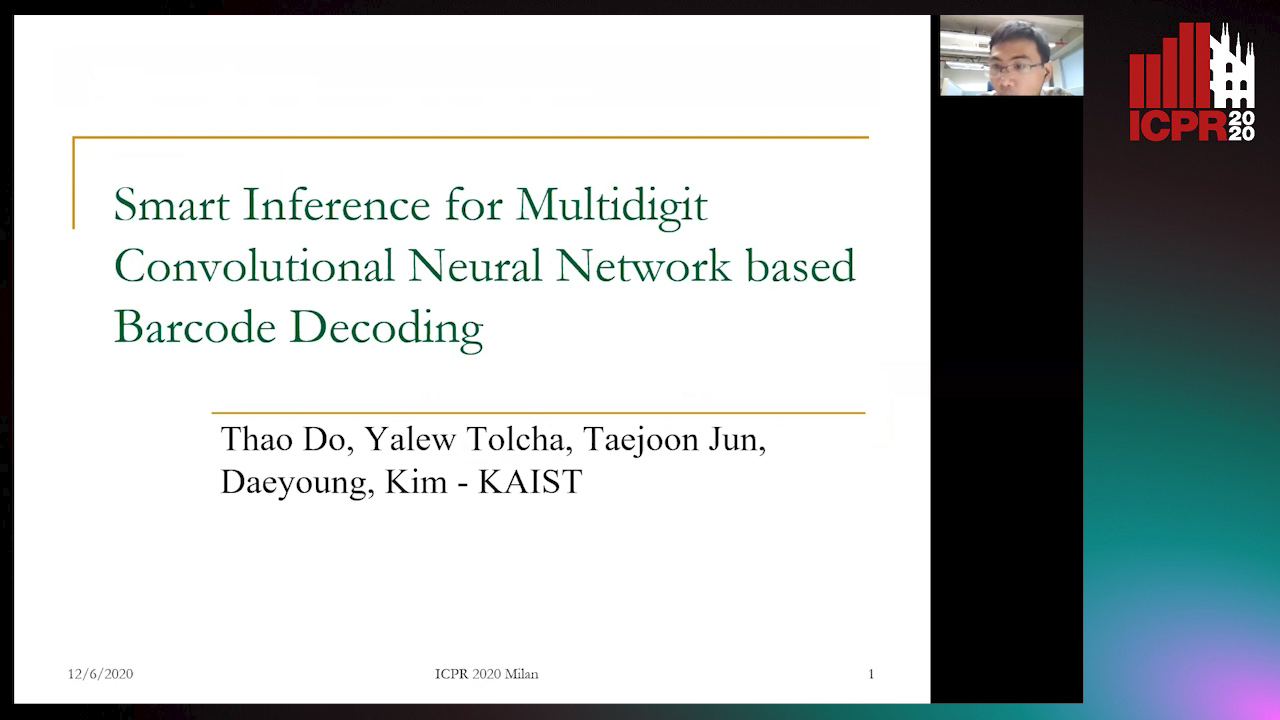Daeyoung Kim
Papers from this author
Simple Multi-Resolution Representation Learning for Human Pose Estimation
Trung Tran Quang, Van Giang Nguyen, Daeyoung Kim

Auto-TLDR; Multi-resolution Heatmap Learning for Human Pose Estimation
Abstract Slides Poster Similar
Smart Inference for Multidigit Convolutional Neural Network Based Barcode Decoding
Duy-Thao Do, Tolcha Yalew, Tae Joon Jun, Daeyoung Kim

Auto-TLDR; Smart Inference for Barcode Decoding using Deep Convolutional Neural Network
Abstract Slides Poster Similar